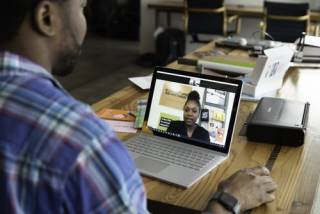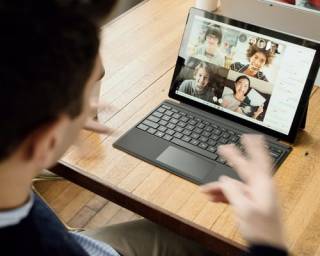What is a peer-coaching group?
A peer-coaching group is a group of peers who support each other, by using coaching skills, to find action plans to tackle work-related issues and goals, reducing overall stress.
The coaching approach is based on the idea that each person has the ability and all the resources to achieve their goals and to find the best solution for their issues. A peer-coaching group does not provide support only, but it represents a place where to learn and improve the way you supervise and support people, as well as a place where to share and discuss.
Benefits of setting up a peer-coaching group
- Develop and enhance your soft skills that are required in many job applications, as well as in several fellowship and grant applications.
- Develop active listening for understanding and supervising your students or future lab members. This will compensate the lack of training in managing people for ECR and young PIs.
- Develop coaching skills, which are usually included in training programmes for ECR and young PIs (including Active Listening, GROW model, SMART).
- Learn different ways of achieving their goals through listening and sharing, expanding the number of options and strategies they can use.
- Share experiences will help people realise they are not the only one experiencing specific issues, reducing feeling isolated and lonely, and promoting asking and seeking for help.
- Keep a sense of community, reducing isolation. The regularity of the meeting helped people keep track of their schedule and time.
Aims
- Support researchers in dealing with work-related issues.
- Reduce researchers’ stressors.
- Help members to clarify/identify goals and achievements they want to pursue.
- Set achievable and realistic goals directed to tackle the person’s issues.
Who is it for?
- Coaching groups can be set up by people with a shared background or at a similar career stage (PhD students, postdocs, lab managers, technicians, etc).
- The inclusion criteria can be flexibly decided by people in the group depending on what makes the group feel more comfortable and useful (i.e. include PhD students and postdocs but not Principal Investigators and Professors).
Methods
- All group members will receive training on two coaching skills to support peers:
- Active Listening
- GROW (Goal, Reality, Options, Will) Model
- The use of different coaching models can be implemented with or chosen over the GROW model depending on what the group thinks might be more appropriate.
- Each member of the group is both a coachee (receiving support) and a coach (providing support), depending on people needs.
Outputs
- The output of the coaching is to draw a realistic action plan to specifically reach your goal / deal with your issue.
- In some sessions, time will be spent to strengthen the coaching skills of all group members through professional support, online material and certificated training.
- As an option, specific sessions can be used to discuss work-related topics (minorities in academia, research culture, COVID-related stress, mental health in academia, etc.)
How to set up your peer-coaching group
- Identify people who would like to commit to peer-coaching sessions
- Identify one or more people who would like to take the lead of the group. It is essential to identify few people in charge of the group management, so meetings and activities are well organised.
- Gather other peers to increase the number of people in the group:
- A peer-coaching group can be form by two members only and it doesn’t have a maximum limit.
- Although you can recruit as many people as you want, we encourage not to exceed 10-15 people at the beginning, so it will be easier to manage the group, create a safer space and being more focused on people issues.
- Complete training
Core training, as well as additional coaching resources are available on the Peer Coaching SharePoint website (requires Office 365 login)
- Agree a set of rules
Set a list of rules all members will have to follow.
- Identify the topic you will be comfortable to speak about (work-related issues)
- Recognise the importance of creating a safe place
- Highlight the limitations of the group (coaching is not counselling, so it is not meant to treat or provide support for mental health issues)
- Set a confidentiality agreement
- Decide the target of the group (which peers would you feel comfortable to chat with?)
- Agree on the commitment required to be part of the group (avoid people joining for one session only)
Set the regularity and the length of coaching sessions, and identify the best time and space to run the coaching.
- With the COVID outbreak, it is more likely to set remote sessions by using Zoom or Teams as platforms.
- It is important to be flexible when identifying the best time for the group to meet as it might be difficult to find a common time among all the group members.
- As peer-coaching groups represent a tool to improve researchers’ wellbeing, it is worth speak with the head of your institute/department to understand if they are interested in supporting the group and reserving a specific time for it, free from other meetings.
- Choose the structure of your coaching session
Consider the structure of your meetings. Below is an example of a typical coaching session, as well as some ideas of what you can do if there are no issues to discuss.
Typical session
1. Two minutes of meditation or breathing exercises to isolate yourselves from what you were doing before
2. Check-in: maximum of 1 or 2 minutes for each group member to tell everyone how they felt in the past days (usually the time between consecutive coaching sessions)
3. Feedbacks from past session:- Did you achieve your goals?
- Was the coaching useful?
- How much progress you did?
4. Coaching Session (30-45 minutes):
- There are different schemes which can be followed as reported in the figure.
5. Feedback on the session:
- Was it useful?
- Comments from the observers
- What can be improved?
6. Set next coaching session.
What if people don’t have any issue to chat about during a coaching session?
Fortunately, it might happen people won’t have specific issues to chat about during some coaching sessions. Therefore, it is extremely important to have few people in charge of organising backup plans so the time could be used for different purposes. Based on our experience, here we report some of the alternatives we have considered:
Additional training on coaching skills through videos or professional support.
- Watch a video on Active Listening and/or GROW model and comment it together. Go through all the questions to recognise all the steps.
- Watch a video of a single or group coaching session and comment the approach highlighting different ways of coaching.
- Follow podcasts/videos on new coaching methods
Discussion about mental health in academia. The peer-coaching group represents the perfect place where to discuss about mental health and science. There are different surveys and articles on the topic which might be useful to comment together
- Use Wellcome Trust surveys and/or Wellcome Trust Cafè kit to guide and promote discussions on different topics
- Highlight how the research culture affects researchers’ mental health through data from surveys and compare it with your experience by sharing examples.
Discussion about minorities in academia. Based on our experience we have observed our group attracted people from underrepresented groups in academia. We used this aspect to discuss about the research environment and how it affects career progression for minorities in research.
Discussion on the impact of COVID-19 on researchers.
 Close
Close



